Oscar History: The Evolution of Acceptance of Openly Queer Actors
 Friday, February 18, 2022 at 2:00PM
Friday, February 18, 2022 at 2:00PM by Eurocheese
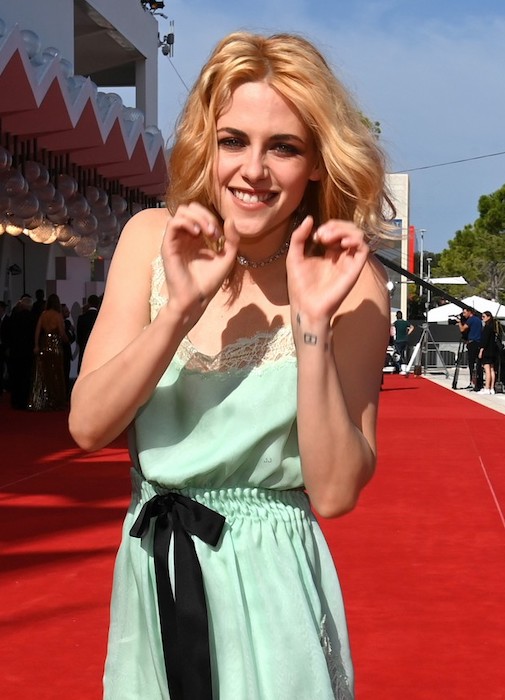
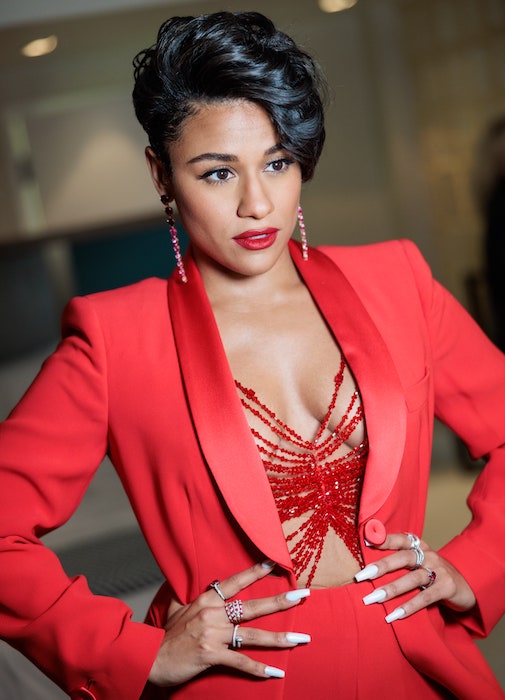
Stewart and DeBose at the world premieres of their movies in 2021
This year, we saw two openly queer women receive first time nominations in the Academy’s acting categories. Famously, the Academy rarely nominates openly LGBTQ performers while often honoring straight actors for playing queer roles, something that was considered “brave” until shockingly recently. But how have out queer performers fared in the past?
Let’s take a look at the previous nominees…
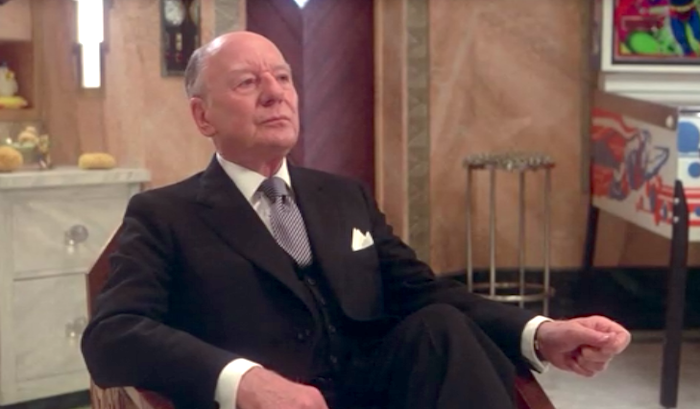 Sir John Gielgud in Arthur (1980)
Sir John Gielgud in Arthur (1980)
Up through the 1980s, there were a number of performers who were outed against their will, a sad situation where they were afraid their careers could be ended by public backlash. Two examples of this can be found in Sir John Gielgud, a two-time nominee who won Best Supporting Actor, and Eva Le Gallienne, who was nominated late in life for Best Supporting Actress. Gielgud was caught cruising, a criminal offense in the United Kingdom in the 1950s, and was convicted. He was terrified his career was over. Even though audiences met him with surprising support for the time – he received a standing ovation for his performance in a play after the news broke in the press – he later suffered a nervous breakdown from the stress of the event.
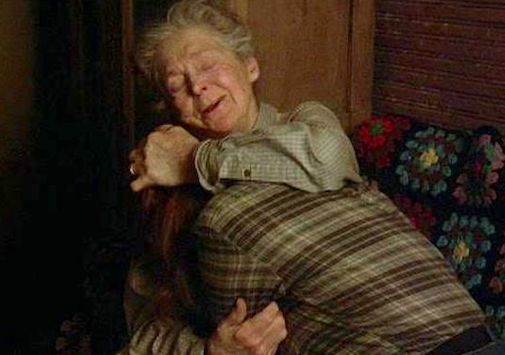 Eva La Gellienne in Resurrection (1980)
Eva La Gellienne in Resurrection (1980)
Le Gallienne, who never tried to hide her sexuality, was outed when she became involved with a married woman in the 1920s and was listed in public divorce proceedings as a cause for the marriage ending. In both cases, there was no choice involved – they were simply skilled performers who didn’t want their sexuality to keep them from working.
There were very few cases of A list stars owning their LGBT sexuality publicly before the 1990s, but some cases do exist. Marlon Brando stated in a 1970s interview that he’d had “homosexual experiences,” and was not ashamed to acknowledge it. By this time, he already had seven nominations and two wins from the Academy, but it didn’t stop him from receiving his final nomination for A Dry White Season. (It’s worth noting that Brando made a number of controversial statements to the press and was far less concerned with backlash than most actors.)
 Jodie Foster winning her second Oscar for Silence of the Lambs (1991). Her private life was very famously off limits to the press throughout her career. She first acknowledged her sexuality in a public forum at the Golden Globes in 2013
Jodie Foster winning her second Oscar for Silence of the Lambs (1991). Her private life was very famously off limits to the press throughout her career. She first acknowledged her sexuality in a public forum at the Golden Globes in 2013
It’s also worth mentioning that there are a number of A list stars in history that are now famously members of the LBGT community, both living legends (Jodie Foster, Joel Grey, Lily Tomlin, the list goes on), and long-passed icons (Rock Hudson, Anthony Perkins, Montgomery Clift, Sal Mineo) that were not open members of the community at the time they were nominated... though in some cases it was an "open secret".
 Jaye Davidson in The Crying Game (1992)
Jaye Davidson in The Crying Game (1992)
By the 1990s, the Academy began to be slightly more open to out performers. Jaye Davidson, the first openly gay black man to be nominated for acting, played a trans woman in The Crying Game. Davidson was a complete unknown at the time and the character’s backstory was revealed late in the film, so this was a unique situation where questions of both gender and sexuality were specifically avoided by the film’s marketing campaign. While he did go on to act in the blockbuster Stargate, Davidson chose to retire early from his acting career.
Actor Sir Nigel Hawthorne hadn’t come out when he was nominated for Best Actor for The Madness of King George (1994), but while he was being interviewed by The Advocate during campaign season, he made reference to his sexuality. This received international attention, and Hawthorne was upset that it became public knowledge. Still, by the time the Oscar ceremony happened he was in attendance with his longtime partner.
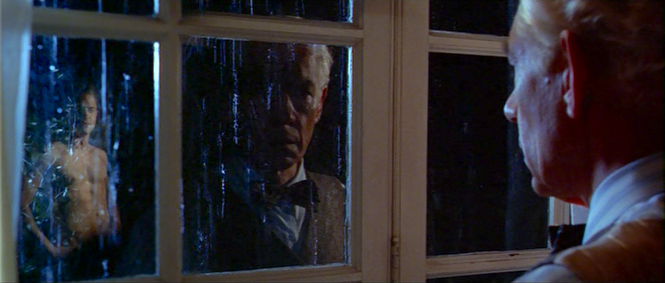 Sir Ian McKellen as gay filmmaker James Whale in Gods and Monsters (1998)
Sir Ian McKellen as gay filmmaker James Whale in Gods and Monsters (1998)
Near the end of the 90s, we saw the first nomination for openly gay actor and activist Sir Ian McKellen. It was also the first and still is the only case of an out gay performer being honored by Oscar for playing a gay character. Having come out a decade prior when supporting gay rights in the United Kingdom, McKellan is still the only actor to have received multiple acting nominations after openly identifying a member of the LGBTQ+ community.
Unfortunately, in the years after his second nomination for The Lord of the Rings: The Fellowship of the Ring (2001), we only saw two other LGBT performers nominated until now. Angelina Jolie, already an Oscar winner, came out in 2003 as bisexual and later received a nomination for her work in Changeling (2008). Lady Gaga, a career-long champion of LGBT rights and out bisexual, was nominated for her role in A Star is Born. Considering that two decades have passed since McKellen’s nominations coincided with major progress in LGBT rights nationwide (though obviously there's still room for improvement), this is a surprisingly small pool!
Finally, this year we begin to see that story change.
 Kristen Stewart as "Princes Diana" in Spencer (2021)
Kristen Stewart as "Princes Diana" in Spencer (2021)
Out of the nine first time acting nominees, two are openly queer women, and Lady Gaga was probably close to securing her second acting nomination as well which would have made it three. Hopefully this challenges the notion that coming out in Hollywood is dangerous for performers’ careers. While there are still challenges faced by out performers in 2022, the Academy is again confirming they will reward LGBT actors.
These two women also represent very different paths to recognition. Kristen Stewart, a child star who rose to A list status with the Twilight series, has received recognition in recent years for pursuing challenging roles in smaller films. Her work with director Olivier Assayas and performance opposite Julianne Moore’s Oscar winning role in Still Alice set her up for critical and international (via her César win) attention, and we then saw her embrace LGBT themes in her own work. She went out of her way to make sure her character’s sexuality was undefined in Charlie’s Angels and was one of the first to star in a queer Christmas film. She has stated in interviews that she hopes to continue to represent both straight and queer characters, as well as challenge Hollywood’s idea of what “normal” characters should be.
 Ariana DeBose in West Side Story (2021)
Ariana DeBose in West Side Story (2021)
Ariana DeBose might be our ingenue in this year’s Oscar race, but she is no stranger to fans of the stage. She appeared in multiple musicals in the 2010s and was a member of the original ensemble cast of Hamilton. She came out as a queer woman in 2015. In her press tour for West Side Story, she has also spoken about highlighting her Afro-Latina background in her performance. As we continue to see LGBT history develop, and especially as we see more recognition for performers in the community from diverse racial backgrounds, hopefully we will see DeBose as a trailblazer who continues to open doors with her success.
So what does all of this mean for the future? We can only hope that as we see more success stories for queer actors, the old adage that performers should stay in the closet will disappear. Representation still matters, and Hollywood cares about talent, first and foremost. Someday we will look back on the stigma towards queer performers and wonder why their talents were ever questioned.



Reader Comments (25)
This really is an evolving issue that should be more present in the discussion. It's shocking to me how few recognition out actors have had, but it's a phenomenon that's also explained by opportunities given to these performers in the first place. It's changing because more people are out, and that's a good message to send to closeted actors. It's getting safer.
Hopefully Oscar's definition of LGBTIQ+ doesn't just stay close to pretty and young bisexual women (nothing against these actresses who I love) but it also extends to trans and non-binary performers as well.
In the "open-secret" category: George Chakiris; twice-nominated James Dean; Charles Laughton.
In the "we'll-probably-never-know" category: Hepburn and Tracy; Garbo.
A couple more in the 'open secret' category - Agnes Moorehead and Alec Guinness.
Lucky -- skipping right over gay men, lol, who the academy has always ignored. haha. but yes, I agree. hopefully they start getting comfortable with the whole spectrum and not just fluid cis women.
I did not know that about Gielgud. What a sad story. I love his Oscar-winning performance. It is sheer comic genius. And overall in his filmography, he was truly a brilliant actor. I just watched him in The Barretts of Wimpole Street, 1957, and damn, he could play an asshole to perfection.
Somewhere between "open secret" and actually "out" is Leonard Frey when he was nominated for Fiddler on the Roof. And whoever would have thought Clifton Webb was straight?
@Working Stiff. It's basically considered a resolved issue in Sweden that Garbo was bisexual. Every time I've been their doing research I've heard stories, and there's a new documentary, PREJUDICE AND PRIDE: SWEDISH FILM QUEER, coming out later this year in which a Swedish film scholar asserts it point blank.
Apparently Ingmar Bergman regular Naima Wifstrand (SMILES OF A SUMMER NIGHT, THE MAGICIAN) was madly in love with her, to the point of it being widely discussed, though it may not have been reciprocated.
This is yet another "Hollywood problem" that gets spun as an "Oscars problem" because the AMPAS works with what they're given each year.
The Academy should stop allowing itself get treated like the villain when everyone knows that this is a pipeline problem that starts with studios, casting directors, film financiers, etc. Some years, four or five of the best films are directed by men—not because women can't be great directors, or because the Academy hates women—but because decisions about which projects get greenlit happened years ago in a conference room.
It's crazy to me that awards groups, which sit at the very end of a production's lifecycle, are the punching bag for every missed opportunity that went into producing films from the beginning.
Clifton Webb? Ok, open secret, but so open that he played that gay part in Laura with such confidence that I doubt he wasn't out.
And Marlene Dietrich even kissed a woman in her Oscar-nominated performance.
Thanks, Dan H. Was pretty sure, but not entirely sure.
DK, I agree that the industry is more responsible for inclusion (or lack thereof) than awards bodies. The point I wanted to make was that the resistance to openly LGBT actors isn't something backed by awards recognition, and hopefully that will open the minds of those involved in casting. The importance of seeing these actors included is to potentially help those who fear coming out would damage their careers. We know there are still obstacles, but if anything, this year is a positive sign from the Academy members.
The Angelina Jolie erasure!
@DK The fact that Ian McKellen in GODS AND MONSTERS lost to Roberto Benigni for LIFE IS BEAUTIFUL in 1998 all but proves that there's been a lot of homophobia in Hollywood in the not too distant past. The fact that they didn't at least award the Oscar that year to Nick Nolte for AFFLICTION proves they can have gawdawful taste, too.
Correct me if I'm wrong , but Also Andrew Garfield is openly pansexual
I think Sir Ian was probably extremely close to winning for both of his nominations. In 2001, he had the misfortune to be up against Jim Broadbent who was in basically everything that year (he acted opposite 3 of the Best Actress nominees), and was probably being as equally rewarded for Harold Zidler as he was for his winning role. '98 was all about four towering achievements, Sir Ian perhaps the highest among them, being beaten by the campaign antics of a really excited Italian.
People win and lose Oscars for all sorts of reasons, but in McKellan's case, I don't think homophobia was the issue (at least not the primary issue). Brokeback Mountain and those gay cowboys on the other hand...
Linda Hunt is also gay. No idea if she was out at the time though
While Jolie didn’t label herself as bi until 2003, she was open about her attraction to men and women in interviews as early as 1997. She should be included!
preemptively rooting for Colman Domingo and Ben Whishaw next year for Rustin and Women Talking respectively
Roge, I'm a little confused - Jolie was mentioned for her nomination after she came out.
Now I wish I could watch documentaries on Gielgud and Le Gallienne.
Another closeted, well-known gay actor was Walter Pidgeon (nominated for Mrs. Miniver & Madame Curie).
The very first Best Actress winner, Janet Gaynor, was quite well known as a lesbian in Hollywood. And she was married off to MGM's top costume designer, the openly gay Adrian, to solve two problems at once.
After John Gielgud was arrested, he was terrified that his career was over. Newspapers were calling for him to no longer be in productions. Sibyl Thorndike, the grand dame from The Prince and the Showgirl, held his hand and said that he should go onstage with her since the audience wouldn't dare boo her. When she led him on, the crowd applauded. They loved his talent and didn't care about his private life. His career was saved but the stress of the incident affected him for years to come.
After John Gielgud was arrested, he was terrified that his career was over. Newspapers were calling for him to no longer be in productions. Sibyl Thorndike, the grand dame from The Prince and the Showgirl, held his hand and said that he should go onstage with her since the audience wouldn't dare boo her. When she led him on, the crowd applauded. They loved his talent and didn't care about his private life. His career was saved but the stress of the incident affected him for years to come.
Nathaniel - gay men as well, of course! There's such a rigid notion of what makes a leading man, still...
Hollywood has such a big debt with the whole community, really.